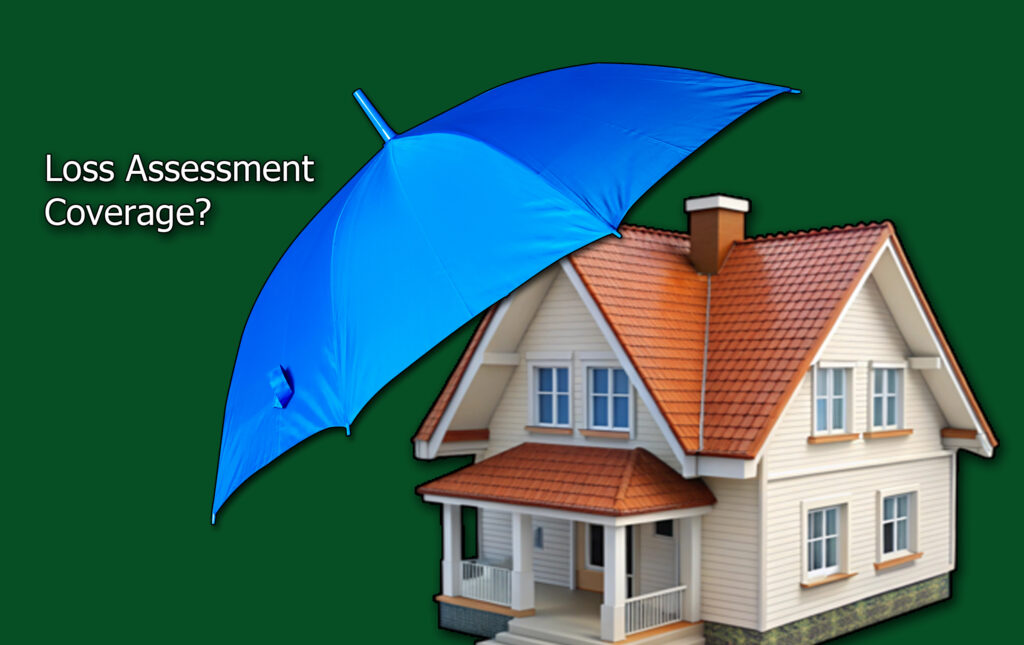Loss assessment coverage is an important coverage for home and condominium owners, as it helps to shield them from unforeseen financial obligations resulting from shared property or common spaces.

When a homeowner association (HOA) or condominium association assesses its members for losses or damages beyond the community’s master insurance policy’s limitations, this coverage kicks in.
The evaluations may be as a result of several events that have occurred, such as liability lawsuits, natural disasters, or major shared space repairs.
We will go over the ins and outs of this coverage in this article, along with its significance for homeowners and the circumstances in which it can offer important financial security and help you be ready for unforeseen expenses related to living with others.
What Is Loss Assessment Coverage?
Loss assessment coverage is usually an add-on coverage specifically designed for homeowners and condominium owners. You can find this type of coverage in homeowners insurance and condo insurance policies.
Essentially, this coverage provides financial protection and security in the event of damage incurred to shared property and common areas of your building.
How Does Loss Assessment Coverage Work?
When a homeowners association (HOA) or condominium association levies an assessment because of damages or losses that rises above the limits of the community’s master insurance policy, this coverage protects homeowners and condominium owners financially.
The association has the right to charge its members to make up any deficit in repair costs or legal obligations resulting from a covered catastrophe, such as a fire, storm, or liability suit.
Policyholders benefit greatly from this insurance type, as it helps to pay their portion of these assessments up to a predetermined and policy-specific amount.
Those who live in shared communities especially benefit from this coverage since it lessens the financial effect of unforeseen community charges that could otherwise result in large out-of-pocket expenses.
What Does Loss Assessment Cover?
Loss assessment coverage is usually designed to offer protection and cover damages that exceed the master policy limits. Outlined below are other types of coverage under loss assessment:
- Damage to common areas such as roofs, lobbies, and pools.
- Liability claims in shared areas.
- Property damage in common areas.
- Medical expenses for injury in common areas.
- Costs related to natural disasters.
- Legal fees for lawsuits involving the association.
- Replacement of shared facilities or structures.
- Losses due to vandalism or theft in common areas.
These are the common examples of the type of coverage you can find in a loss assessment policy. If you need further clarification about what your policy covers precisely, check your policy document or reach out to your insurer directly.
What Is Not Covered By Loss Assessment?
Loss assessment does not provide coverage for every type of risk or damage done to your home or condo. The policy also has its own limitations; it will not provide coverage for:
- Property improvements not related to issues covered by your policy.
- Intentional damage.
- Damage caused by negligence.
- Individual unit repairs.
- Claims for general liability unrelated to common areas and shared property.
- Claims for personal injuries or medical expenses unrelated to incidents in common areas.
Always read the fine print of your policy carefully in order to have a better understanding of what it covers and what it does not.
Who Needs Loss Assessment Coverage?
Loss assessment coverage is an ideal option for both homeowners and condominium owners, especially those who reside in neighborhoods with shared facilities or common areas.
If you own a house or condo and you are part of an association, purchasing this coverage is a wise decision, as it covers costs that a master policy cannot accommodate.
Those who wish to safeguard themselves against unforeseen financial assessments made by the association as a result of damages exceeding the limits of the community’s master insurance policy will find this coverage particularly advantageous.
Homeowners can manage shared property duties with peace of mind by purchasing this coverage, because it helps to lessen financial burden in the event of unforeseen assessments.
Tips For Buying Loss Assessment Coverage
If you plan on buying this coverage, here are things to consider:
Review Your Association’s Bylaws
It is essential to have an understanding of the bylaws that pertain to loss assessments in your association. This will give you a better idea of situations where assessments and evaluations may arise.
Understand Your Association’s Master Policy
To fully understand the coverage limits and deductibles, seek information about your association’s master policy. By doing this, you will be able to decipher if premiums on the policy are for protection.
Read The Policy Carefully
In the process of purchasing this coverage, it is important to carefully read the fine print of the policy.
This would help you know if you have enough coverage or if you need to add more to it. Consider speaking to an experienced insurance agent who can put you through what loss assessment covers, including its limitations.
Frequently Asked Questions
What Is Loss Assessment Coverage?
It is a type of insurance that aids in shielding homeowners or condo owners from financial assessments imposed by their homeowners association (HOA) or condominium association for shared property losses that is beyond the limits of the master insurance policy.
Is This Coverage Mandatory?
While many associations may mandate having loss of assessment coverage in their bylaws, it is usually not required to safeguard the financial stability of the community.
How Much Does Loss Assessment Coverage Cost?
The cost of loss assessment coverage varies significantly among insurance companies. The insurer, coverage limits, and individual circumstances are factors that affect the cost of loss assessment coverage.
Nevertheless, it is an affordable policy for home and condominium owners who take out their time to shop around and compare quotes from several insurance companies.



